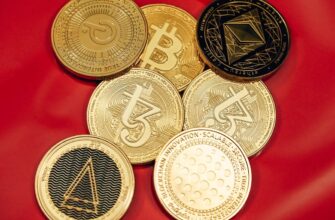Why Bitcoin is Gaining Traction in Zimbabwe
Zimbabwe’s economic volatility, characterized by hyperinflation and currency instability, has driven many citizens toward Bitcoin as a store of value and alternative payment method. With remittances making up a significant portion of GDP and traditional banking limitations, Bitcoin offers financial inclusion, borderless transactions, and protection against local currency devaluation. This guide simplifies how to safely buy Bitcoin in Zimbabwe.
Step-by-Step: How to Buy Bitcoin in Zimbabwe
- Choose a Reliable Platform: Select a cryptocurrency exchange or peer-to-peer (P2P) marketplace supporting Zimbabwean users (e.g., Binance P2P, Paxful, or LocalBitcoins).
- Create and Verify Your Account: Sign up with your email/phone, then complete KYC verification using your national ID or passport.
- Secure a Bitcoin Wallet: Set up a non-custodial wallet (e.g., Trust Wallet or Exodus) to store your BTC privately. Avoid keeping coins on exchanges long-term.
- Deposit Local Currency: Fund your account via bank transfer, mobile money (EcoCash, OneMoney), or cash deposit, depending on platform options.
- Place Your Order: On P2P platforms, select a seller with high ratings, agree on terms, and send payment. On exchanges, use the “Buy” feature at market price.
- Transfer to Your Wallet: Withdraw purchased Bitcoin to your private wallet for enhanced security.
Top Platforms to Buy Bitcoin in Zimbabwe
- Binance P2P: Largest liquidity, low fees, and multiple payment methods (EcoCash, bank transfers). Supports ZWL and USD.
- Paxful: User-friendly P2P marketplace with 350+ payment options, including mobile money and gift cards.
- LocalBitcoins: Escrow-protected trades with flexible payment negotiations. Ideal for cash meetups or bank transfers.
- Golix (Local Exchange): Zimbabwe-based platform allowing direct ZWL purchases via RTGS or mobile money.
Storing Your Bitcoin Securely
Never leave Bitcoin on exchanges. Use:
- Hardware Wallets (e.g., Ledger): Offline devices for maximum security against hacks.
- Mobile Wallets (e.g., Trust Wallet): Convenient for smaller amounts; enable 2FA and backup phrases.
- Paper Wallets: Cold storage via printed QR codes – keep physically safe from damage/theft.
Managing Risks: Scams, Volatility & Regulations
- Avoid “Get Rich Quick” Schemes: Steer clear of unrealistic investment promises.
- Verify Sellers: Check trade history and ratings on P2P platforms before transacting.
- Dollar-Cost Average (DCA): Invest small amounts regularly to mitigate price swings.
- Regulatory Awareness: Zimbabwe doesn’t ban Bitcoin, but taxes apply. Declare earnings to ZIMRA.
Frequently Asked Questions (FAQ)
Q: Is Bitcoin legal in Zimbabwe?
A: Yes, Bitcoin isn’t illegal, but it’s unregulated. The Reserve Bank of Zimbabwe advises caution due to volatility.
Q: Can I buy Bitcoin with EcoCash?
A: Absolutely. Platforms like Binance P2P and Paxful support EcoCash payments via peer-to-peer trades.
Q: What’s the minimum amount I can buy?
A: As low as $1 equivalent on most platforms. Binance P2P allows purchases from 0.0001 BTC (~$6).
Q: How long do transactions take?
A: Bank transfers: 1-24 hours. Mobile money: Under 30 minutes. Bitcoin network confirmations: 10-60 minutes.
Q: Are there taxes on Bitcoin profits?
A: Yes. Capital gains tax (up to 20%) applies to profits from selling Bitcoin. Keep transaction records.
Q: What if a seller scams me on P2P?
A: Use platforms with escrow (like Paxful). Funds are released only after you confirm receipt. Dispute mechanisms protect buyers.
Q: Can I convert Bitcoin back to ZWL?
A: Yes. Sell BTC on the same P2P platforms for ZWL, USD, or mobile money balances.








